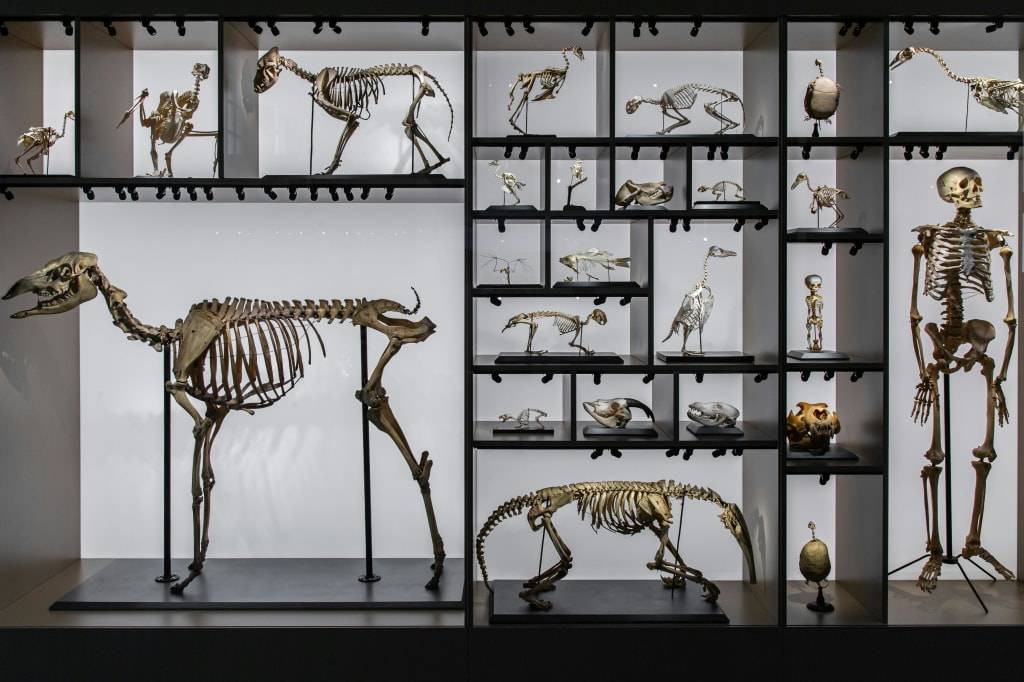65 million years ago, dinosaurs reigned supreme, their colossal forms dominating every era they inhabited, unquestionably ruling as the kings of the animal kingdom. Then, in a cataclysmic twist of fate, everything changed. An asteroid, an ominous harbinger from the depths of space, hurtled towards Earth with unfathomable speed, destined to rewrite the course of history. The impact was nothing short of apocalyptic, unleashing devastation on a scale never before witnessed. Fires ravaged the land, tsunamis engulfed coastlines, and an ominous debris cloud blanketed the sky, shrouding the planet in darkness. In the blink of an eye, 75% of life on Earth vanished, and the mighty dinosaurs, once unparalleled in their dominance, faced extinction.
But what if history unfolded differently? What if the asteroid had missed its mark, sparing the dinosaurs from their untimely demise? Let us embark on a journey through the annals of time, rewinding the clock over 65 million years, to envision an alternate reality where dinosaurs never ceased to roam the Earth. In this speculative realm, we dare to ponder how the evolutionary trajectory of these magnificent creatures might have unfolded.
Before we delve into the speculative realm of evolutionary what-ifs, let us first revisit the harrowing events that precipitated the demise of numerous dinosaur species. Approximately 66 million years ago, as the Cretaceous Period drew to a close, the asteroid Chicxulub hurtled towards Earth with devastating intent. Its impact unleashed a maelstrom of destruction, triggering a chain reaction of calamities that reverberated across the globe. The once-mighty dinosaurs, rulers of land, sea, and sky, found themselves teetering on the brink of oblivion, their reign brought to a sudden and catastrophic end.
In the evolutionary saga of life on Earth, survival has always been the ultimate crucible, testing the resilience and adaptability of species against the relentless forces of natural selection. As we ponder the hypothetical scenario of dinosaurs persisting through the ages, let us contemplate the fate of some of the most iconic and awe-inspiring creatures to ever walk the Earth.
At the apex of the prehistoric food chain stood the Tyrannosaurus Rex, a behemoth of unparalleled ferocity and dominance. In a world untouched by extinction-level events, the T-Rex might have continued to evolve, its formidable prowess honed to even greater heights by the relentless pressures of natural selection. Over millions of years, perhaps its vision would have sharpened to razor-like precision, enabling it to spot prey from vast distances with unerring accuracy. Furthermore, evolutionary pressures could have sculpted its anatomy, endowing it with longer, more muscular arms, enhancing its agility and predatory prowess to unprecedented levels.
The cunning and fleet-footed Velociraptors, renowned for their intelligence and pack-hunting prowess, might have evolved into even deadlier predators. Feathered and nimble, these apex predators might have taken to the skies, their predatory instincts finely tuned to target unsuspecting prey from above. In this speculative reality, domestic pets and even small children might have fallen prey to their razor-sharp talons and relentless pursuit.
Flying reptiles, such as the awe-inspiring pterodactyls, would have continued to refine their aerial skills, soaring through the skies with wingspans that dwarfed small buildings. Imagine the sheer terror of encountering these gargantuan creatures as they ruled the skies with unchallenged supremacy, their piercing screeches echoing through the air like harbingers of doom.
But not all dinosaurs were fearsome predators. Gentle giants like the Brachiosaurus, towering behemoths of the prehistoric world, might have evolved to withstand the rigors of a world teeming with danger. Thicker skin could have offered protection against the assaults of predators, while more complex digestive systems adapted to process evolving plant species, ensuring their survival in an ever-changing world.
As dinosaurs continued to evolve, so too would humans. In a world where dangerous predators roamed the land, human evolution would have taken a markedly different trajectory. Natural selection might favour genes for smaller, faster humans, adept at evading the clutches of ferocious predators. Social structures would adapt to coexist with intelligent dinosaur species, leading to the emergence of entirely different civilizations shaped by the constant struggle for survival.
The collision of the Chicxulub asteroid altered Earth's course forever, leaving an indelible mark on the tapestry of evolution. Yet, in the vast expanse of time, every event, every cataclysmic upheaval, shapes the trajectory of life on our planet. If we could reverse the course of one pivotal moment, like the asteroid collision that spelled doom for the dinosaurs, the world as we know it could be irrevocably altered. It is a tantalizing thought experiment, a journey into the realm of infinite possibilities hidden within the depths of time.



No comments yet
Be the first to share your thoughts!